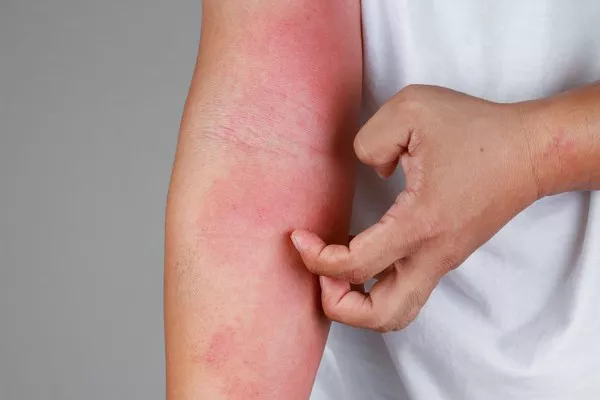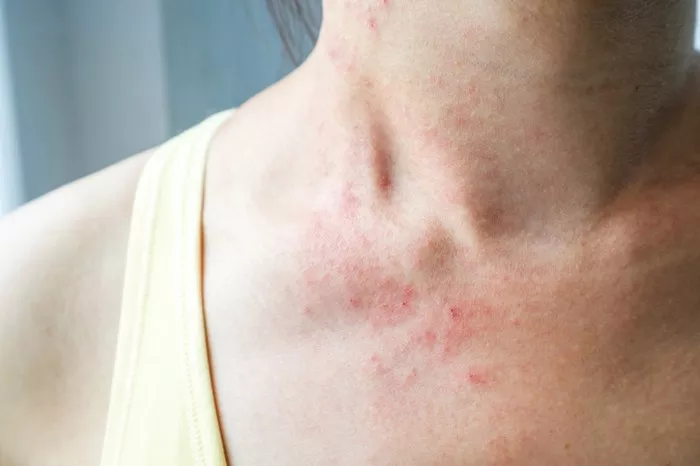Eczema, a chronic inflammatory skin condition, affects millions of individuals worldwide, causing discomfort and distress. Among its many symptoms, itching stands out as one of the most troublesome. The relentless urge to scratch can exacerbate inflammation, leading to further discomfort and potential skin damage. Managing eczema-related itching requires a multifaceted approach, combining proper skincare, lifestyle adjustments, and sometimes medical intervention. In this comprehensive guide, we delve into effective strategies for alleviating itching associated with eczema.
Understanding Eczema Itching
Before exploring relief strategies, it’s essential to understand why eczema causes itching. Eczema disrupts the skin’s barrier function, leading to increased moisture loss and susceptibility to irritants and allergens. This compromised barrier allows substances to penetrate the skin easily, triggering an immune response and inflammation. Nerve endings in the skin then become more sensitive, heightening the sensation of itching. Scratching further damages the skin barrier, perpetuating the cycle of itching and inflammation.
Maintain Proper Skincare
Skincare plays a pivotal role in managing eczema-related itching. Establishing a gentle skincare routine can help soothe irritated skin and reduce itchiness. Consider the following tips:
1. Use Mild Cleansers: Opt for fragrance-free, hypoallergenic cleansers that won’t strip the skin of its natural oils. Avoid harsh soaps and detergents, as they can exacerbate dryness and irritation.
2. Hydrate Regularly: Moisturizing is crucial for eczema-prone skin. Choose emollients and moisturizers formulated for sensitive skin and apply them liberally, especially after bathing or showering, to lock in moisture.
3. Avoid Hot Water: Hot water can worsen eczema symptoms by stripping the skin of its natural oils. Opt for lukewarm water when bathing or showering, and limit bathing time to avoid excessive drying of the skin.
4. Pat Dry, Don’t Rub: After washing, gently pat the skin dry with a soft towel to avoid aggravating eczema patches. Rubbing the skin vigorously can cause further irritation and itching.
Identify and Avoid Triggers
Eczema triggers vary from person to person but often include allergens, irritants, stress, and climate changes. Identifying and avoiding these triggers can significantly reduce itching and flare-ups. Keep a journal to track potential triggers and consider the following:
1. Allergens: Common allergens for eczema sufferers include pet dander, pollen, dust mites, and certain foods. Minimize exposure to these allergens by keeping living spaces clean, using allergen-proof bedding, and avoiding known food triggers.
2. Irritants: Harsh chemicals found in household cleaners, personal care products, and laundry detergents can aggravate eczema symptoms. Choose fragrance-free, hypoallergenic alternatives to minimize irritation.
3. Stress Management: Stress can exacerbate eczema itching and flare-ups. Practice stress-reduction techniques such as mindfulness meditation, deep breathing exercises, or yoga to promote relaxation and emotional well-being.
4. Climate Control: Extreme temperatures and low humidity can trigger eczema symptoms. Use humidifiers to add moisture to the air in dry environments, and dress in layers to regulate body temperature in cold weather.
Adopt Healthy Lifestyle Habits
Certain lifestyle habits can influence eczema symptoms, including itching. Making healthy choices can support overall skin health and reduce the frequency and severity of flare-ups:
1. Maintain a Balanced Diet: A well-balanced diet rich in fruits, vegetables, lean proteins, and healthy fats can support skin health and reduce inflammation. Omega-3 fatty acids, found in fish oil and flaxseed, have anti-inflammatory properties that may benefit eczema sufferers.
2. Stay Hydrated: Drinking an adequate amount of water is essential for maintaining hydrated skin. Aim for at least eight glasses of water per day to support overall skin health and minimize dryness.
3. Get Regular Exercise: Regular physical activity promotes circulation and reduces stress, both of which can benefit eczema symptoms. Choose low-impact exercises such as swimming, walking, or yoga to minimize sweating and skin irritation.
4. Practice Good Sleep Hygiene: Quality sleep is crucial for skin repair and regeneration. Establish a consistent sleep schedule, create a relaxing bedtime routine, and ensure your sleeping environment is conducive to restful sleep.
Seek Medical Treatment When Necessary
In some cases, eczema itching may require medical intervention. If home remedies and lifestyle adjustments are insufficient to manage symptoms, consult a dermatologist or healthcare provider. They may recommend the following treatments:
1. Topical Corticosteroids: Topical corticosteroids are commonly prescribed to reduce inflammation and itching associated with eczema. These medications come in varying strengths and formulations and should be used under the guidance of a healthcare professional.
2. Topical Calcineurin Inhibitors: Calcineurin inhibitors such as tacrolimus and pimecrolimus are non-steroidal medications that suppress the immune response and reduce inflammation. They are often prescribed for sensitive areas such as the face and neck.
3. Antihistamines: Oral antihistamines can help alleviate itching and promote sleep, especially during flare-ups. However, they may cause drowsiness and should be used with caution, particularly during daytime hours.
4. Phototherapy: Phototherapy, or light therapy, involves exposing the skin to ultraviolet (UV) light under medical supervision. This treatment can reduce inflammation and itching in some individuals with eczema.
5. Biologic Medications: Biologic medications, such as dupilumab, target specific components of the immune system involved in eczema inflammation. They are typically reserved for moderate to severe cases of eczema that do not respond to other treatments.
Conclusion
Managing eczema-related itching requires a comprehensive approach that addresses skincare, lifestyle habits, and, when necessary, medical treatment. By adopting gentle skincare practices, identifying and avoiding triggers, maintaining a healthy lifestyle, and seeking medical guidance when needed, individuals with eczema can find relief from itching and improve their overall quality of life. Remember, consistency and patience are key, as managing eczema is often a lifelong journey of trial and error.


























